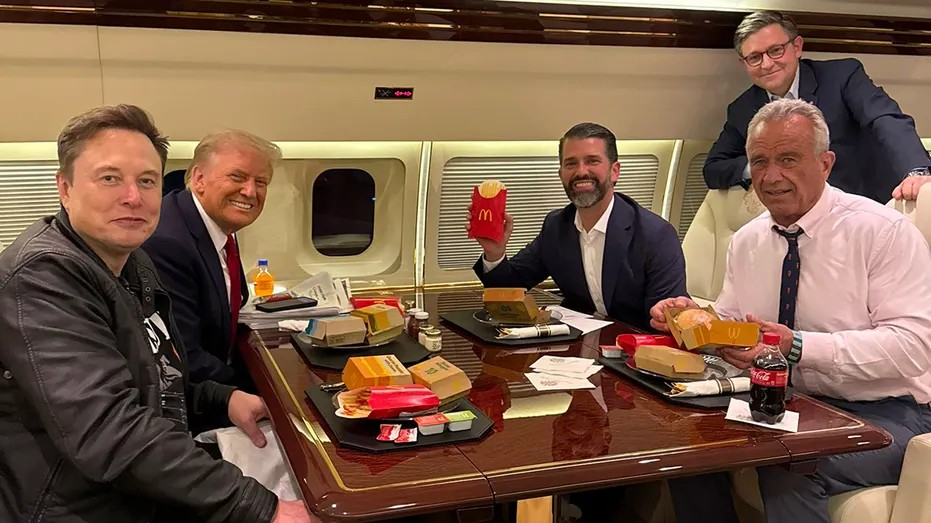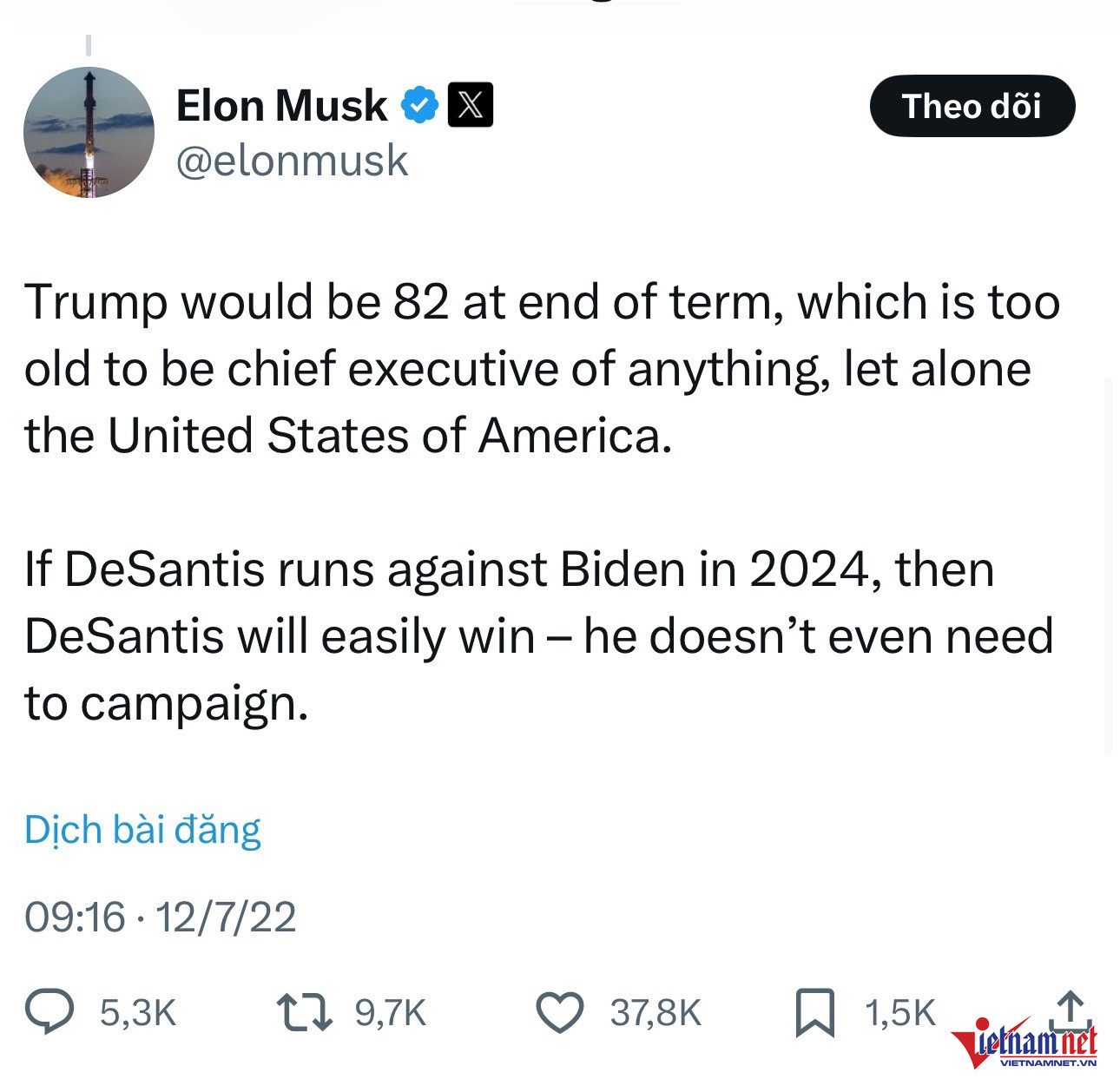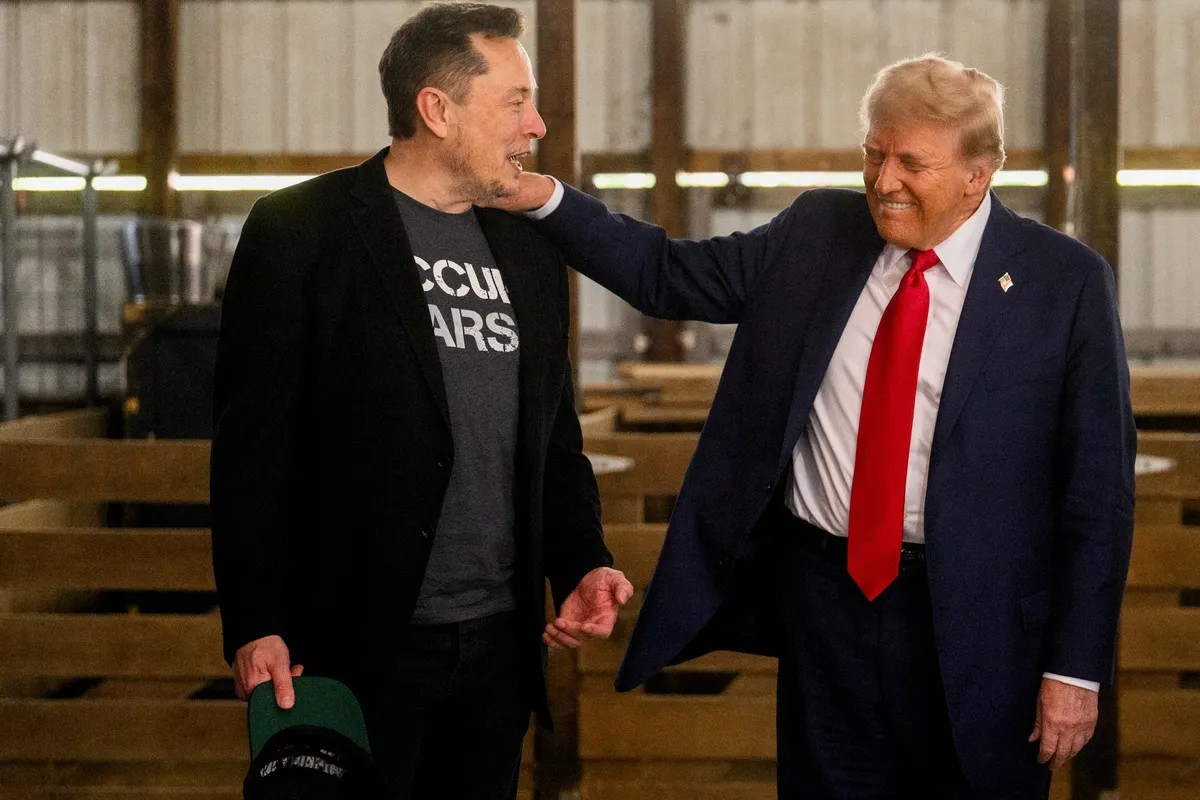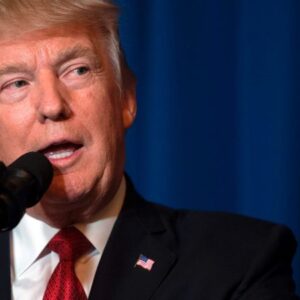From Supporting Democrats to Backing Donald Trump: Elon Musk’s Strategic Shift Toward the Republican Party
Elon Musk’s pivot from being a Democratic supporter to endorsing Republican Donald Trump reveals the far-reaching vision of this “kingmaker.”
Just a week after Trump was re-elected as U.S. President on November 12, Musk was appointed to a key position in the new administration, marking the beginning of a unique relationship between him and President Trump.
The world’s richest man saw his wealth increase by over $80 billion. Transitioning from a steadfast Democrat to a Trump supporter, Musk not only reshaped his political stance but also reaped substantial financial and political rewards.
A Master Strategist in Politics and Business
Musk, often dubbed a “kingmaker,” has not only profited from shrewd investment strategies but also leveraged political relationships to advance his enterprises.

President-elect Donald Trump (red tie) shared a photo of himself having a meal with Elon Musk (brown shirt). Photo: X
A Public Advocate for Democrats
Before the 2024 U.S. presidential election, Musk was widely recognized as a vocal supporter of the Democratic Party. In the 2016 election, he publicly endorsed Hillary Clinton, the Democratic candidate, and was a major donor to her campaign in California.
According to Bloomberg, Musk ranked among the top contributors to Clinton’s campaign, demonstrating his commitment to the Democrats at the time.
In the 2020 election, Musk cast his vote for Joe Biden, despite expressing disagreements with some Democratic policies. He consistently supported Democratic initiatives, funding campaigns and organizations aligned with the party.
During President Barack Obama’s administration, Musk and Tesla benefited significantly from clean energy incentives and policies that promoted electric vehicle development. These measures helped propel Tesla to the forefront of the electric vehicle market.
A Rocky Relationship with Trump
Musk’s interactions with Donald Trump have not always been smooth. During Trump’s presidency, Musk criticized several administration policies, particularly on environmental issues.
One notable incident was Trump’s 2017 decision to withdraw the U.S. from the Paris Climate Agreement. In protest, Musk resigned from Trump’s advisory councils, escalating tensions between the two.
In 2022, Trump publicly criticized Musk, alleging he sought subsidies for Tesla projects and mocking him on social media. Musk retorted, stating that Trump was too old to run for president in 2024.

Elon Musk once "criticized" Donald Trump for being too old to become president. Photo: X
The Shift Toward the Republicans
Musk’s discontent with the Biden administration became apparent after Biden took office in 2021. Policies supporting the United Auto Workers (UAW) union and new regulations targeting technology companies frustrated Musk and other investors.
Musk accused Biden of being a “puppet” for the UAW, criticizing what he saw as unreasonable labor demands.
This growing dissatisfaction led Musk to back Donald Trump in the 2024 presidential race. He believed Trump’s business-oriented approach would foster a more favorable environment for tech companies and ease regulatory constraints on Tesla and SpaceX.
Musk’s support for Trump extended beyond rhetoric; he reportedly donated at least $130 million to Republican campaigns and actively backed candidates in swing states.
Using his social media platform, X (formerly Twitter), Musk amplified his support for Trump while spreading misinformation about Vice President Kamala Harris, immigration, and voter fraud.
Trump praised Musk during campaign stops, highlighting his innovation and intelligence and hinting at a significant advisory role or even a cabinet position in a second Trump administration.

On July 14, on the X account, Musk declared "complete support for President Trump"
and wished him a quick recovery after the failed assassination attempt in Butler, Pennsylvania. Photo: X
Profiting from “Kingmaking”
Trump’s re-election brought clear financial benefits for Musk. Overnight, Tesla’s stock soared, driving its market value past $1 trillion and adding tens of billions to Musk’s net worth.
With an investment of just over $100 million, Musk achieved monumental returns, exemplifying the adage, “Nothing profits like kingmaking.”
But Musk’s gains extended beyond personal wealth. His companies, including Tesla, SpaceX, and Neuralink, depend heavily on government regulations and policies.
Tesla, for example, requires exemptions from agencies like the National Highway Traffic Safety Administration (NHTSA) to produce fully autonomous vehicles by 2026.
Musk has also criticized the Food and Drug Administration’s (FDA) approval processes for Neuralink and may leverage his relationship with the Trump administration to accelerate these approvals.
Furthermore, Musk’s businesses face numerous federal investigations and lawsuits, ranging from securities fraud to labor rights violations. He could use executive influence to resolve some or all of these 19 ongoing cases against Tesla, SpaceX, and X.
Expanding Power Through Politics
Appointed as the head of the Government Efficiency Department, Musk is positioned to reshape regulations and cut bureaucratic structures he deems “bloated and costly.” This role could further cement his influence in both the political and technological arenas.
Musk’s adept maneuvering highlights his mastery as a “kingmaker,” exploiting political ties to secure financial and strategic advantages.
By shifting allegiance from the Democrats to the Republicans, Musk has demonstrated his ability to capitalize on opportunities under a Republican administration.
Through his “kingmaking” strategy, Musk has solidified his business empire while expanding his political influence—a crucial factor in building both power and wealth.

Elon Musk has been invited to co-lead President-elect Donald Trump’s Department of Government Effectiveness. Photo: Bloomberg



